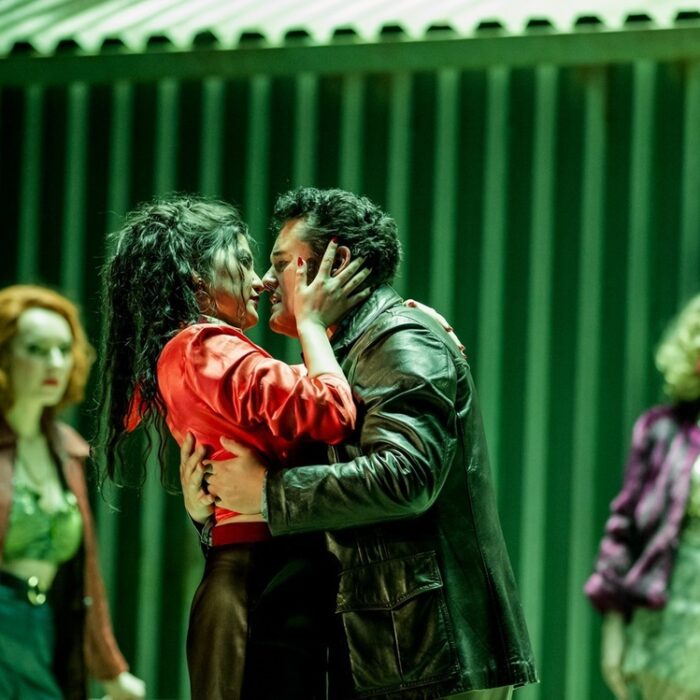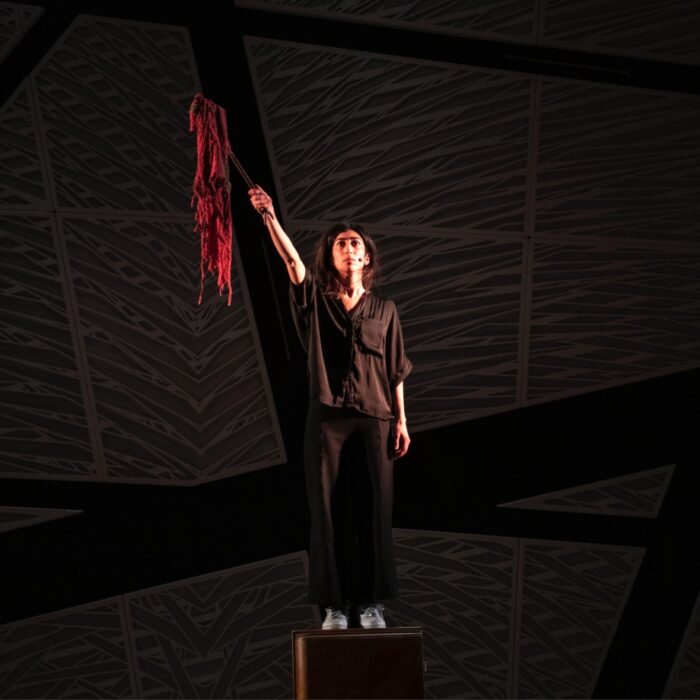
Handel & Haydn Society 2023 Review: Israel in Egypt
By João Marcos CopertinoThe vocal music scene in Boston is not bad, but it is far from vibrant. Vocalists do the best they can. But there are few operas, especially for a city that has a big-five orchestra. This is one of the reasons why Handel and Haydn Society’s “Israel in Egypt” was a highly anticipated event.
In his first performance as artistic director of Handel and Haydn (H+H) Society, Jonathan Cohen showed why the musical group is one of the most exciting ensembles of historically informed performances in the world. The group had great sonority and extremely precise playing. Cohen’s reading of the piece was both dramatically and musically compelling.
The most striking aspect of the night was H+H’s willingness to explore the sonic possibilities of Boston’s Symphony Hall. They did not play loud. Instead, they were unafraid of engaging with the hall and giving Händel’s music its due gravitas, especially its necessary lower harmonics.
What an Orchestral Group!
Some solos were particularly breath-taking: Guy Fishman on the cello with Christina Day Martinson and Aisslinn Nosky on violin made “The Lord is my strength” a blend of elegant phrasing and proper sonority.
The big heroes of the night were, however, the chorus and the brass. While the singers punctuated the music with a highly dramatic reading of the text, especially in the narrative of the ten plagues at the end of part two, the brass enveloped their voices with a generous and noble sound. Few times has one heard such a delicate approach to orchestral timbres in early music.
It has been said that Händel was the composer who best understood the human voice. Although such definitive statements are often untrue, one might argue that Händel’s music caused a shift in how the voice is treated in western music. Händel’s attention to the text places more emphasis on the voice which makes the singer not just part of the music, but often the main center of attention.
This particularity of Händel’s music—and also to a certain degree, Bach’s—made singers the object of grandiloquent romantic interpretations that nowadays most music lovers find repellent. Just imagine “Israel in Egypt” sung by four thousand people in London’s famous Crystal Palace! There is actually a recording of this from 1888!
Although such titanic ideas are better left in the past, the H+H chorus rescues some of this particular power for vocal greatness that is nevertheless present in “Israel.” H+H sang everything expressively, never afraid of the power of their own sound.
H+H and Cohen found their sweet spot. They gave detailed attention to the music that is so important, while respecting the fact they were in a music hall that seats more than twenty-six hundred people. It was built more in consideration of the demands of Brahms and Beethoven than of Händel.
H+H was unafraid of strong sharp sounds cutting—with words—the acoustics of the room, and establishing a sense of music and phrasing that is essential in making the oratorio as imposing as it should be.
As usual, “Israel in Egypt” drafted soloists from the chorus. And even though all singers had very healthy and beautiful voices, it was evident from the beginning that their experience as soloists was less than their experience as choristers. There were no major mistakes, but some anxiety was evident here and there, and some variations that were not as brave as one might expect nowadays in ABA arias. Their voices, so resonant as a group, were not that booming when singing solo.
Some Standouts
But, there were moments in the arias that were noteworthy. Countertenor Doug Dodson enchanted the audience with his impressive coloratura. At the end of his “Their land brought forth frogs” aria an audience member even sighed in sheer delight.
Baritone Woodrow Bynum was extremely imposing and reverential as an Israelite Man while singing “To God our strength.”
Soprano Sonja DuToit Tengblad showed her talents in the final moments of the oratorio, raising everyone’s expectations for the finale. Her voice, a bit more vibrant and vibrated than the other sopranos of the night, proved itself a perfect match for Miriam’s command to lead the people of Israel out of captivity.
When Tengblad’s voice hit the high notes and led the chorus to Miriam’s song of praise and liberation, a tender feeling came into everyone’s heart, an intimated promise for a future where things will be better than they were before.


